Грег Иган - Distress
Здесь есть возможность читать онлайн «Грег Иган - Distress» весь текст электронной книги совершенно бесплатно (целиком полную версию без сокращений). В некоторых случаях можно слушать аудио, скачать через торрент в формате fb2 и присутствует краткое содержание. Жанр: Фантастика и фэнтези, на английском языке. Описание произведения, (предисловие) а так же отзывы посетителей доступны на портале библиотеки ЛибКат.
- Название:Distress
- Автор:
- Жанр:
- Год:неизвестен
- ISBN:нет данных
- Рейтинг книги:3 / 5. Голосов: 1
-
Избранное:Добавить в избранное
- Отзывы:
-
Ваша оценка:
- 60
- 1
- 2
- 3
- 4
- 5
Distress: краткое содержание, описание и аннотация
Предлагаем к чтению аннотацию, описание, краткое содержание или предисловие (зависит от того, что написал сам автор книги «Distress»). Если вы не нашли необходимую информацию о книге — напишите в комментариях, мы постараемся отыскать её.
Distress — читать онлайн бесплатно полную книгу (весь текст) целиком
Ниже представлен текст книги, разбитый по страницам. Система сохранения места последней прочитанной страницы, позволяет с удобством читать онлайн бесплатно книгу «Distress», без необходимости каждый раз заново искать на чём Вы остановились. Поставьте закладку, и сможете в любой момент перейти на страницу, на которой закончили чтение.
Интервал:
Закладка:
Ve summons vivid diagrams and equations into the air. The brilliant stellar cluster of the Information Cosmos, wrapped densely in explanatory threads, holds up the simple drab cone of the Age of Ignorance, which points back to the physical Big Bang. Vis audience of less precocious four-year-olds struggle with the concepts. Time before the Aleph moment? Grandparents notwithstanding, it almost defies belief.
I rise to my feet and recite my prepared version of the events of fifty years ago—getting laughs of incredulity in all the right places. Ownership of genes? Centralized authorities? Ignorance Cults?
Ancient history always sounds quaint, old victories preordained, but I try to convey some sense of how long and hard their ancestors struggled to learn everything they now take for granted: that law and morality, physics and metaphysics, space and time, pleasure, love, meaning… are all the burden of the participants. There are no immovable centers, dispensing absolutes like manna: no God, no Gaia, no beneficent rulers. No reality but the universe explained into being. No purpose to life unless we create it, together or alone.
Someone asks about the turmoil in the days after Aleph.
I say, "Everyone found the truth hard to swallow. Orthodox scientists—because the TOE had turned out to be grounded in nothing but its own explanatory powers. The Ignorance Cults—because even the participatory universe, the most subjective reality possible, was no synthesis of their favorite myths—which could never have created anything—but the product of universal scientific understanding of what coexistence really meant. Even the Anthrocosmologists turned out to have been wrong; they’d been so obsessed with the idea of a single Keystone that they’d barely considered the possibility that everyone, equally, could play that role. They’d missed the most stable, and symmetrical, solution: where every mind obeys the TOE—but it takes all of them, together, to create it."
One astute listener sees that I’m dodging the issue—a child I would have called "human," in the days before the H-word exploded and it was finally understood: the TOE is all we have in common.
"Most people weren’t scientists, cultists, or Anthrocosmologists, were they? They had no stake in these ideas. So why were they so sad?"
Sad. There were nine million suicides. Nine million people we could not hold up, when all illusions of solidity vanished. And I’m still not certain that there was no other way—that I found the only possible bridge into the Information Cosmos. If I’d let myself descend into the madness of Distress, would someone else have asked a different last question, and found another way through?
No one has accused me, no one has judged me. I’ve never been damned as a criminal, or hailed as a savior. The idea that a single Keystone could ever have explained ten billion people into existence is absurd, now. In retrospect, Distress is seen as no different from the naïve illusion that every galaxy is rushing away from us—when in truth, there is not, and cannot be, any center at all.
I talk haltingly about Lamont’s Area. "It made people think that they knew each other, and could speak for each other, understand each other—much more than they really could. Some of you might still have it in your brain—but in the face of the evidence, now, it’s easy to ignore."
I try to explain about the delusion of intimacy, and how much was invested in it once. They listen politely, but I can see that it makes no sense to them, because they know full well that they’ve lost nothing. Love in the face of the truth has turned out to be stronger than ever. Happiness never really depended on the old lies.
Not for these children, born without crutches.
In vis home in the dazzling bounteous engineered jungle of Malawi, I’d told Akili I was dying. After you, there was no one. And we’d touched for the last time.
I move on quickly.
"Other people," I add, "lamented the end of mystery. As if nothing would remain to be discovered, once we understood what lay beneath our feet. And it’s true that there are no more deep surprises—there’s nothing left to learn about the reasons for the TOE, or the reasons for our own existence. But there’ll be no end to discovering what the universe can contain; there’ll always be new stories written in the TOE— new systems, new structures, explained into being. There might even be other minds on other worlds, co-creators whose nature we can’t even imagine yet.
"Violet Mosala once said: Reaching the foundations doesn’t mean hitting the ceiling. She helped us all touch the foundations; I only wish she could have lived to see you building on them, higher than anyone has built before."
I take my seat. The children applaud politely—but I feel like a senile fool for telling them that their future is unbounded.
They already knew that, of course.
Author’s note
Among many works which inspired me in the writing of this novel, I must single out Dreams of a Final Theory by Steven Weinberg, Culture and Imperialism by Edward W. Said, and "Out of the Light, Back Into the Cave" by Andy Robertson (Interzone 65, November 1992). The excerpt from the poem Technoliberation is modeled on a passage from Aime Cesaire’s Notebook of a Return to the Native Land .
Интервал:
Закладка:
Похожие книги на «Distress»
Представляем Вашему вниманию похожие книги на «Distress» списком для выбора. Мы отобрали схожую по названию и смыслу литературу в надежде предоставить читателям больше вариантов отыскать новые, интересные, ещё непрочитанные произведения.
Обсуждение, отзывы о книге «Distress» и просто собственные мнения читателей. Оставьте ваши комментарии, напишите, что Вы думаете о произведении, его смысле или главных героях. Укажите что конкретно понравилось, а что нет, и почему Вы так считаете.
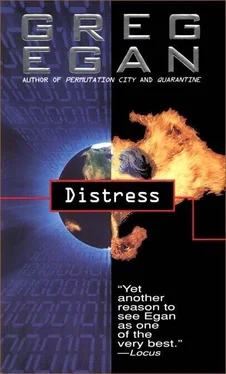
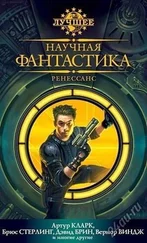
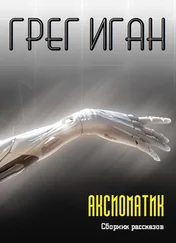
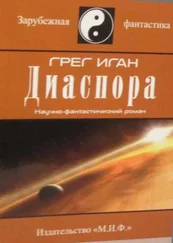
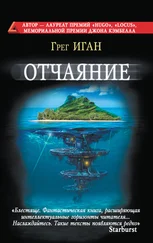
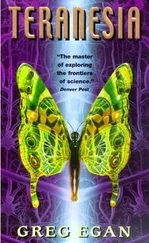
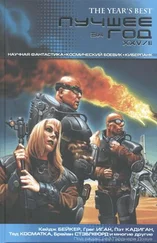

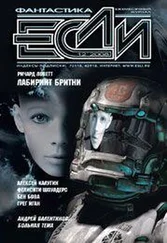
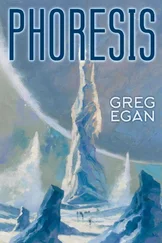
![Грег Иган - Рассказы [компиляция]](/books/419837/greg-igan-rasskazy-kompilyaciya-thumb.webp)
